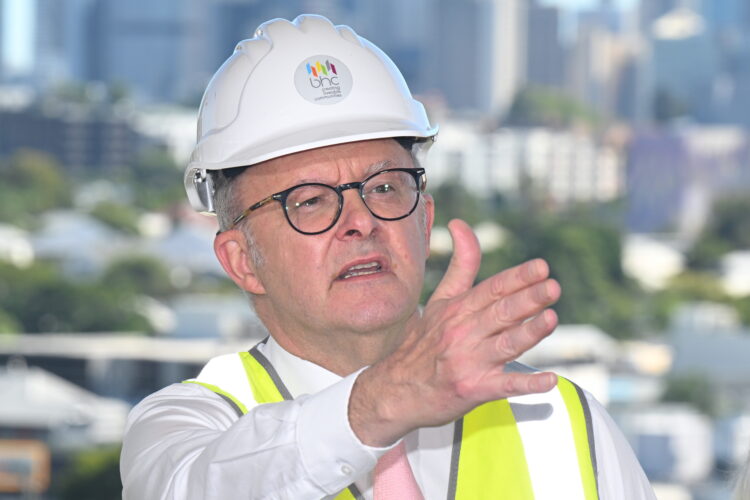Q: As you’re aware, the Coalition is planning a whole lot of cuts. One of the things that it proposed was slashing the EV tax break. This is something that was designed by Treasury. It was meant to cost $55 million a year. It’s costing more than $500 million a year. That’s a shocking blow-out. And a lot of these very-well-fed, … lovely people in this room would probably be getting that tax break. So, what justification is there for such a generous tax bnreak to go to the well-healed, and will you pledge now to at least look at revising it?
Albanese:
One of the reasons why it costs more is that it’s been very successful. Is that more people are participating in it. And it was designed to support lowering our emissions by addressing a change which is occurring. We’re having – I was Transport Minister a long time ago, and I remember going to a conference in Tokyo, of all the big manufacturers and transport ministers around the world. At that time, 2008 I think it was – might have been 2009 – the manufacturers – whether it be Japanese, American, European – all were saying there wasn’t any research being done into an internal combustion engine vehicle. And what we’ve seen is Australia move beyond the sort of nonsense that the Coalition did of having – saying that you can’t – you know, you can’t have a ute, you can’t tow your boat, you can’t… all that nonsense. We do have a shift in technology when it comes to transport around the world. We were one of two nations – the other one being Russia – that didn’t have any fuel standards.
We’re the only ones. It meant we were only getting the really expensive vehicles. What’s happening now is that Australians are getting access to cheaper vehicles – that’s a good thing.
Q: Yes, but if your Medicare increase was not costing $8.5 billion but $85 billion, you would revise it, wouldn’t you?
Albanese:
Well, we have costed policies, and we are…
Q: Clearly not very well, when it comes to this one.
Albanese:
No – what’s happened, and what often does happen with technology, is that Australians are great uptakers of new technology. It’s actually one of the things that will lead us to success, is the fact that my government makes no apologies for being involved in things like the quantum issue and a whole lot of other issues. We need to shape it as we go forward. This is one of the ways that we have done that. And it is in place.

